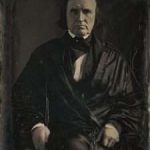The Supreme Court’s decision to hear the TikTok divestment statute case is better for TikTok than the alternative: The D.C. Circuit had upheld the statute, and now TikTok has a chance to try to reverse that.
But it’s not a high chance, I think, chiefly because the D.C. Circuit opinions on the First Amendment were detailed and careful, and were written by a highly respected and ideologically mixed group of judges: Douglas Ginsburg, a Reagan appointee; Sri Srinivasan, an Obama appointee; and Neomi Rao, a Trump appointee. Srinivasan took a different approach on the First Amendment issue than did Ginsburg and Rao, but he reached the same result: All three voted to uphold the law.
It seems to me a good bet that most of the Supreme Court Justices will take a view similar to either Ginsburg’s and Rao’s or Srinivasan’s. It’s hard to identify up front any Justices who, as a matter of their general jurisprudence or of their particular First Amendment views, are likely to be quite different than all three of the D.C. Circuit judges. There are certainly highly plausible arguments against the law, as well as in favor. It just seems unlikely to me that those arguments will persuade five Justices when they persuaded neither Ginsburg nor Srinivasan nor Rao.
To be sure, sometimes this rule of thumb doesn’t work well. Sometimes, for instance, even a unanimous lower court decision by an ideologically mixed and broadly respected panel of judges might be based on Supreme Court precedent that the lower court had to follow but that the Supreme Court may overrule. But that seems unlikely here.
Likewise, sometimes the Court’s decision to consider a case is a signal that the Court finds something wrong with the decision below—or else why not just leave the lower court decision standing? But I think the answer to this “or else” question is likely just that this is an important, high-profile case raising important constitutional questions. It seems to me likely that the Justices thought an issue of this significance ought to be resolved by the highest court in the land, not by an intermediate appellate court.
Of course, I may be wrong; perhaps the Court’s decision to hear the matter did indeed flow from at least four Justices’ skepticism about the D.C. Circuit decision. (It takes four Justices of the nine to agree to hear a matter.) And of course while the current Justices loosely fit into the same ideological wings as the three judges on the D.C. Circuit panel, they of course have their own views which may well differ from fellow conservatives’ or liberals’ views. But if I had to bet on the case, I’d pretty confidently bet on the government.
The post Odds Are Against TikTok at the Supreme Court appeared first on Reason.com.







